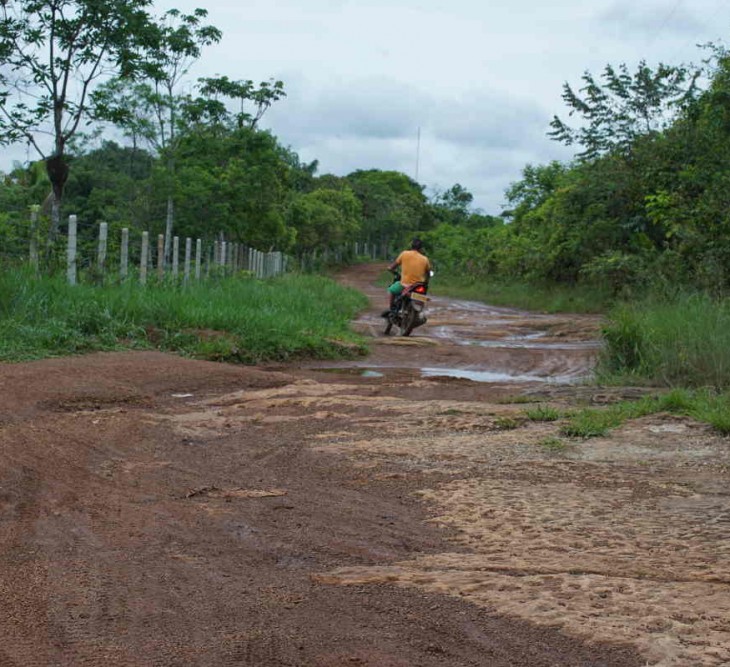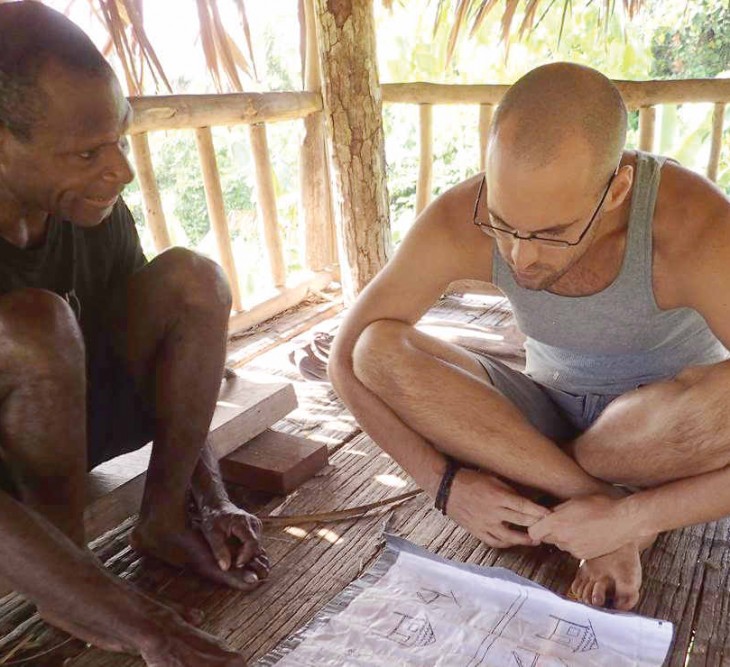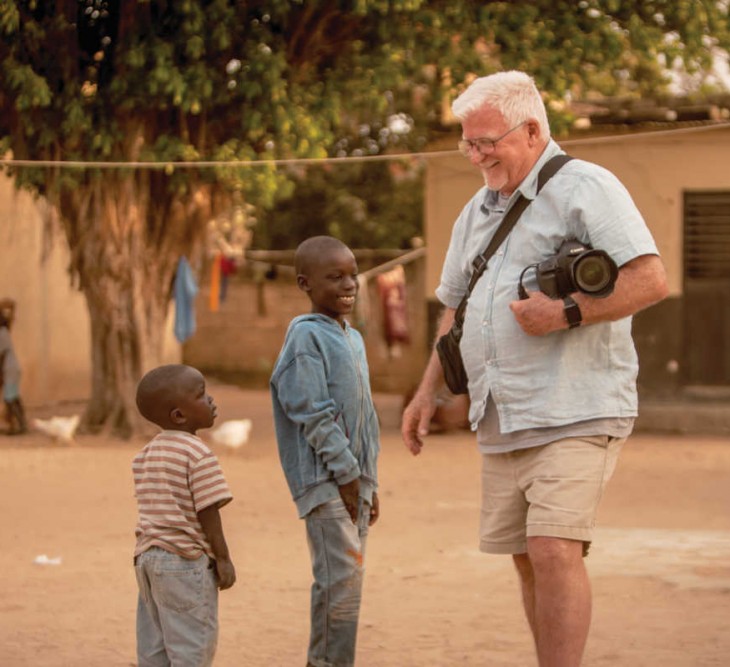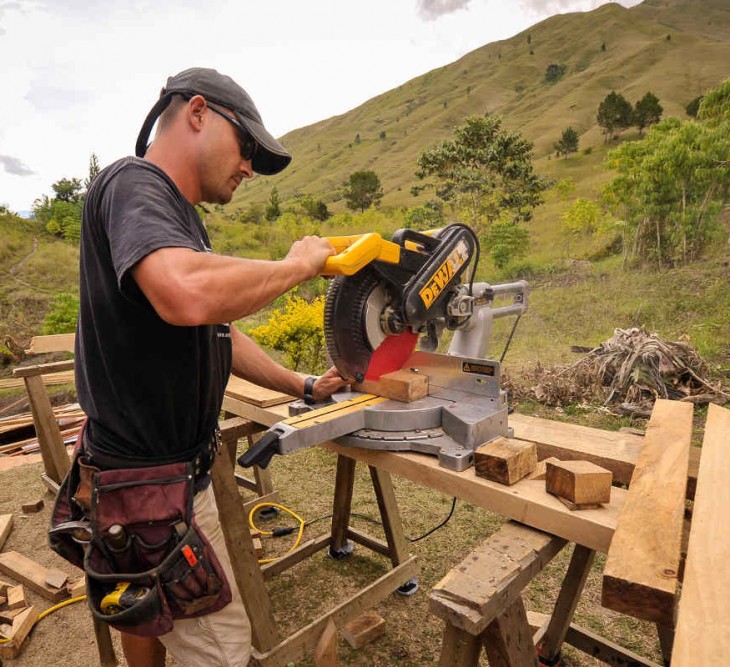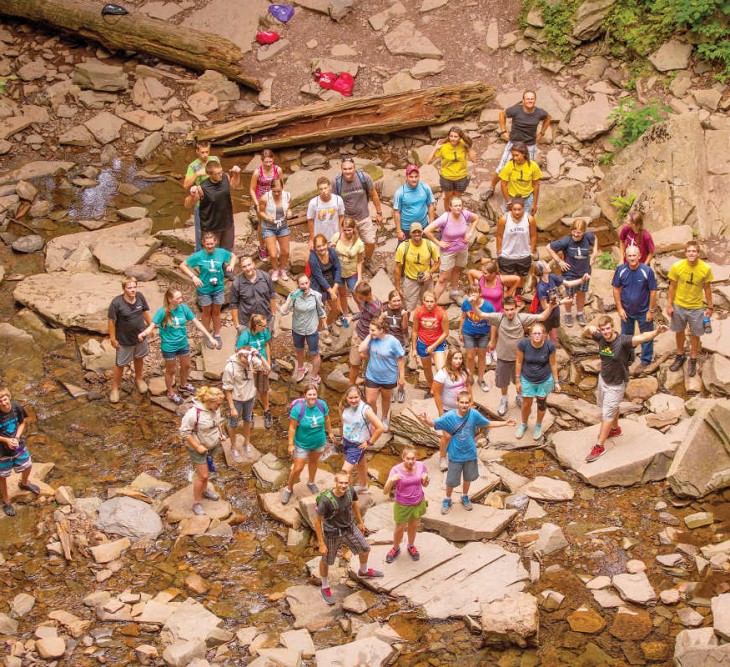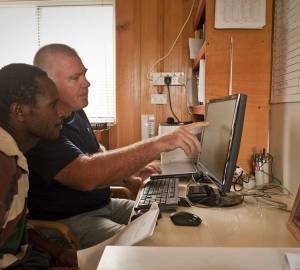He’s With Us in the Fire
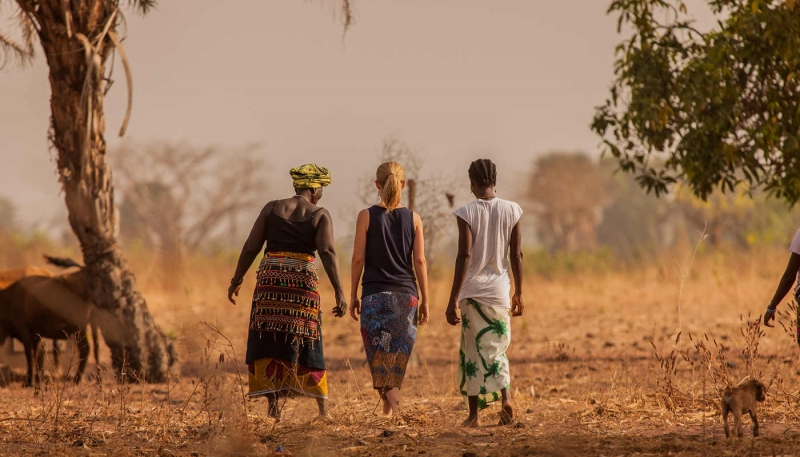
“Our first night we will never forget,” said Jakob.*
For two weeks, Jakob and his wife, Lina, who are from Germany, and their co-workers, Bryan and Sheri, from the USA, drove daily from a nearby West African town, down a rough dirt road to the village. But both couples wanted to be around for the next day’s ceremony when boys would be initiated into manhood. So the people gave each family a hut to sleep in.
It was a relief from the stress of driving in the next day, as they were already under a lot of stress as they began their ministry, and more was coming.
“We got so much food from them we could not eat it all,” Jakob said. “You have no idea what the right thing to do is. … I was talking in French, but there was almost no one who knew French.”
That night Jakob, Lina and their two boys shared one big mattress under a huge mosquito net.
“It was terribly hot,” Lina said, “[and] there was no door.” The lack of a door became an issue when a cow stopped just outside and began to moo.
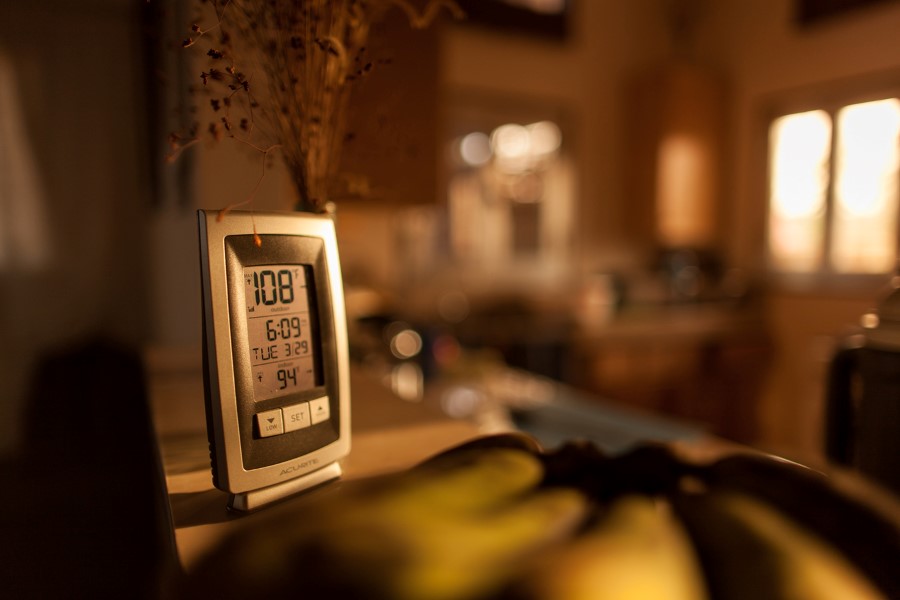
And then it got worse.
“I thought, ‘Oh, man, something is itching,’” Lina said. They would find out later that their hut was previously home to chickens. And the chickens were homes to fleas, many of which had stayed behind when the chickens moved.
“We were covered with those fleas,” Lina said. “It was very intense. It was the longest night ever.”
The next day, the initiation was being held in another village, “and the whole village wanted to go with us in our vehicle,” Jakob said. The ceremony went on into the night. It was getting darker and darker, and after a stressful day, a sleepless night and another long, hot day, Jakob and Lina were more than ready to go back. But the people weren’t.
It was a pivotal moment for the couple.
“We are far, far beyond our comfort, our limits,” Jakob said. “But on the other side, we are seeing how God is carrying us through that.”
“It was so hot in that hut,” Jakob said — the experience apparently seared into the couple’s memories — but they were making connections with people. By God’s grace and relying on His strength, they were able to persevere and adapt, and the people they connected with amid those difficulties are some of the people they feel closest to today.
Building Relationships Comes First
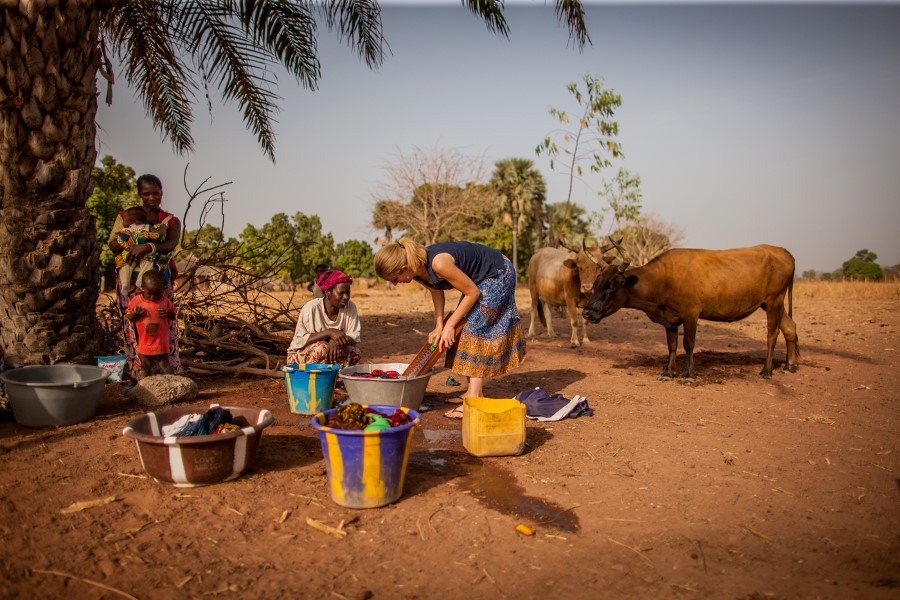
“It’s through relationships that you really enter the culture,” said Bryan, Jakob’s co-worker.
“Our strongest relationship is with our host family,” Bryan added. Each missionary family has a host family which acts as their sponsor and helps them learn and adapt.
“My host father, he very much has adopted me as his son,” Bryan said, though “there are still huge cultural barriers …. I am an outsider.”
For instance, while our media team was in the village, Bryan and Jakob were trying to figure out what had prompted some trouble and a meeting. “They’re not really telling me what’s going on,” Bryan said. “Sometimes, depending on the situation, they’ll share more than at other times.”
“If you just come here to visit, let’s say, this village, you’d be considered an outsider,” Bryan said. “They’d just deal with you as somebody who’s coming for the day. And they’ll be friendly, but you won’t know what is happening in their minds. You don’t what they’re thinking. You don’t know what’s going on culturally.
“But if you hang out with them … over time, you start to pick up on all the cultural things. … You begin to figure out, if something happens, how they’re going to react.
“Like at first, for example, when I got here, I would see a cow heading over to a pot, and my first instinct was to jump up and chase it away. … [But] if you hold yourself back, you can see how they’re going to react.”
Watching their reactions helped Bryan see how the people view cattle. “In South Dakota it’s beef,” he said. “Here the cow is almost a member of the family,” and it gets to lick the pot.
Relating the Way They Relate
“When we came here, we observed things they were doing … [and] it did not make sense to us,” Jakob said.
They had to learn to slow down, to “take the time to sit down for a few minutes,” Jakob said.
They had to find out that saying you trust someone means nothing if you won’t take the food they offer you. Since the people believe poisoning and witchcraft are often worked through food, to accept food is to say, “I trust you.”
And what happens when they make a mistake — which is inevitable when you’re trying to operate in another culture?
The two couples have learned to speak to their host families, since it is the older men in the village who take care of such issues. “I would go to my host father,” Jakob said, “and tell him, ‘I have made a mistake and I am really sorry about it.’ And he would go … to repair the situation.”
Then there was the time Jakob caused a problem for his host father.
As a result of a disagreement, the village elders had pushed aside one of the village’s most respected men. Because the man was still respected, Jakob assumed that when he held a meeting to show all such men honor and respect, this man would be included. And when this man passed by one day, Jakob mentioned the meeting, and said he had told the elders to invite all the respected men. But that invitation had not been passed on.
“So he called my host father and started shouting at him,” Jakob said. “Oh my! How do I repair that?”
Jakob asked his host father’s younger brother what he should do. “He said everything is done, don’t bother about it,” Jakob said. “I will never talk to my [host] father about it. It’s repaired because the younger brother has done everything in my name.”
It feels strange to work through other people to address issues like this, Jakob said, but they must do it this way because it’s the way the people do it. “It’s not the words, it’s how we do it,” he said. “Going the right way is very important.”
Relationships Are Key to Understanding Their Beliefs
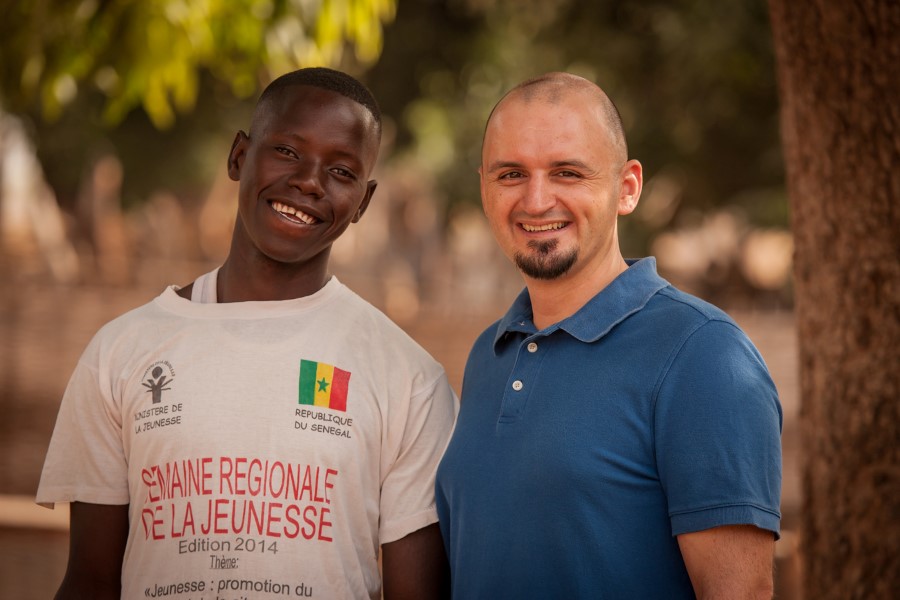
It’s through relationships that the missionaries are able to learn the deeper things — to plumb the depths of this culture and begin to learn what the people believe and how they view the world.
“It’s almost living in a fairy tale,” Jakob said. “In their world there exist animals, spirits, witches, and we don’t see all those things.”
Witchcraft is a huge fear. “They are all the time afraid of sorcery,” Jakob said. “If you have a swollen hand because of an infection, their first thought will not be that you have an injury and an infection. They will think somebody made it so you are sick. If a young person dies, it has to be sorcery.”
And sometimes it’s the “sorcerers” who die.
Not long after the families arrived in the village, a 15-year-old girl gave birth prematurely. She and her baby were shunned by relatives, even as they prepared for a major sacrifice to their spirits. She and the baby died. Later, the missionaries found out why she was neglected: she was accused of sorcery.
Lina was heartbroken. “They neglect a living person, but care for something that in our eyes doesn’t make any sense,” she said. “They are not bad people, but there are very deep things that make them live the way they do and decide certain things.”
Understanding those things is important in order for the families to present the gift of salvation clearly.
You Have to Talk the Talk
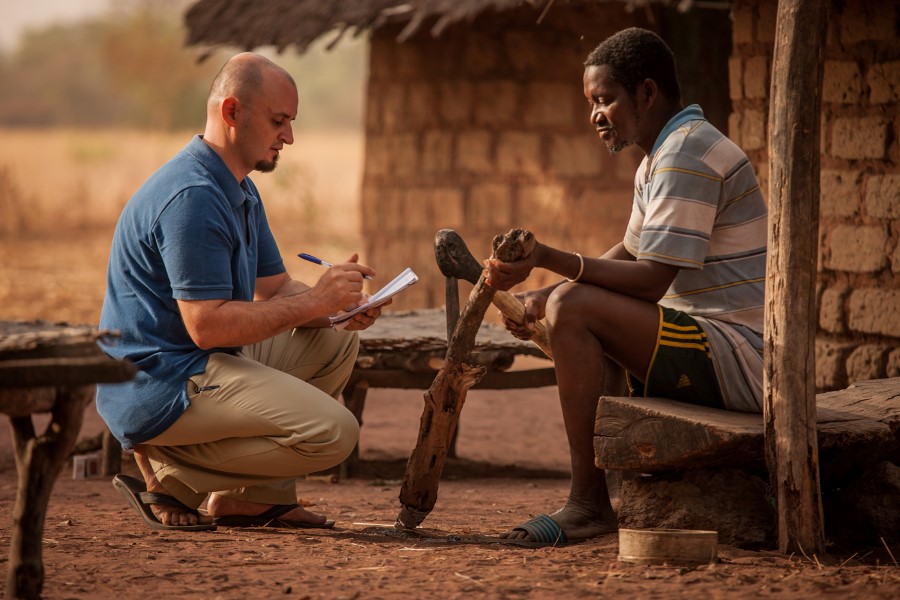
Learning their language is also important.
“It’s crucial to sharing information, who God is, who Jesus is, why they need a Savior, and how Jesus is that Savior,” Bryan said.
But this is not a simple language.
“The verb in sentences contains so much information and it becomes critical that you conjugate it correctly,” he said. “It is also very difficult to get [the verb] correct because it contains the pronoun, when it’s being done, who is doing it, who it’s being done to and much more.”
The tense, the direction and speed of the action, the intent, negation and more can also be plugged into the verb. “Most of the root verbs have one or two syllables,” Jakob said, “but most of the words have eight syllables.”
There can be “a whole sentence in one word,” Lina said.
And if the sentence contains a second verb, that has to be conjugated as well — differently from the first verb. “It was mind-blowing that I had to learn this whole new set of conjugation,” Bryan said.
Nouns are also complicated. Chantal, who has been working in another village alongside her husband, Allesandro, and a believer from this people group, Boneré, said there are 20 classes of nouns. Each class is pluralized differently, and adjectives are modified differently according to the class of the noun.
“Their language is difficult!” she said.
“Then there are words which sound to our ears almost the same,” Jakob said.
“They sound very different to their ears,” Lina said. “To us it sounds like five meanings for the same word.”
And at times even knowing the words is not enough. You have to know the culture as well to grasp how the people speak to one another.
“Sometimes,” Jakob said, “there are lots of words and sentences we understand pretty well, but we still don’t understand the meaning of it. … When they are telling a story … I feel like I have to start learning all over again.”
So why not just reach them in French? The language is widely spoken throughout West Africa and is taught in the schools.
“Most of the people who are older, and the ladies, they did not go to school,” Jakob said. “Years and years ago, only the children of the chiefs went to school.”
“French is for educated people,” Lina said. “It leaves out women, children and old people.”
But even those who do understand French have a limited grasp of the language. They use it primarily to buy and sell.
“Few of these people have a good grasp of French and even fewer have a level of French which is high enough to understand spiritual concepts,” said Chantal, who is French Canadian and thus a native French speaker. “Our message is the most important one, and we have to make sure to communicate that clearly.”
“Discipleship is a huge thing, and for that you need their language,” Jakob said.
You Have to Walk the Walk
But there’s yet more to this. There’s something even more challenging.
“You can’t adequately speak their language if you haven’t changed how you see things and haven’t changed how you think,” said Bryan’s wife, Sheri. “I need to change.”
“God is a relational God,” Lina said. “We’ll never become like them, but we want to become relevant.”
When Lina spends time with the women, she wants to hear, “’OK, we have work to do, so here’s your share, and you can’t leave until you do this.’ I don’t want to be treated like a stranger, sitting on a chair all the time. I’m far from being as good as they are, and they know that better than I do, but I like it when they treat me the same way they treat each other.”
God Can Do This
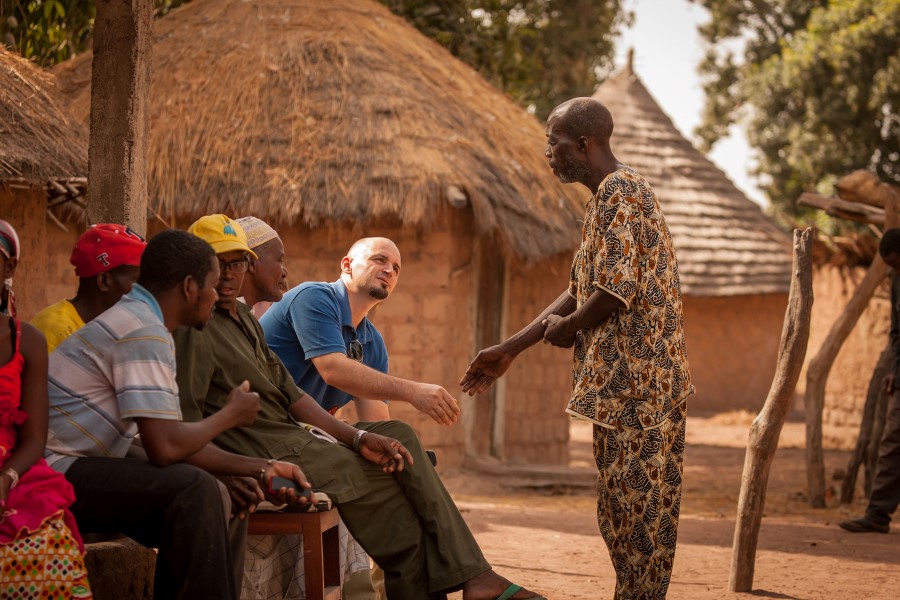
And like that very first overnight in the village, it all comes back to God. Almost daily, the three families are faced with the fact that they cannot do this.
When I asked Bryan what he was learning, he responded, “Dependence on God alone for our strength, because situations will disappoint whereas God will never forsake us.”
“At the end of the day when we go to bed, I try to look back and think about what we have accomplished today,” Jakob said. And often, his answer is, “Nothing. Nothing that is being seen. But in the long run, a lot of things are happening. … It’s not over days. It’s over years.”
“Are we able to plant a church?” Jakob asked. “No, we are not. These challenges we see ahead of us, no, we are not able to do that. … But He is. Is He able to use us? Yes, He is. ... This is one of those things that keeps us here, believing that He is going to do it.”
“We are so aware that we are not able,” Lina said. But in the midst of all of this — perhaps in part because of all of this — “we are experiencing Christ. It is so fulfilling. There is an indescribable joy that comes from that despite all these things. I think we are very much privileged to be here.”
So there you go. If you’ve ever wondered if you could do this kind of work, the answer is right there. You can’t. But God can. He works through people just like you — and blesses them richly.
Trust Him. You only have to trust Him enough to take that next step.
* The last names of the missionaries and the name of the people group have been omitted for the safety and security of the team and the people they work with.

